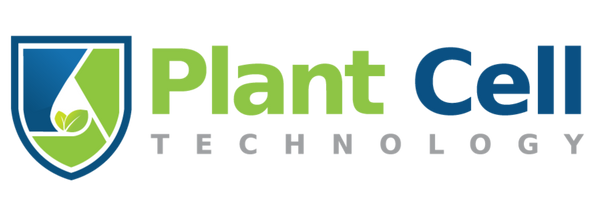
Proven Success: Case Studies and Testimonials on the Effectiveness of PPM™
As a content and community manager, I leverage my expertise in plant biotechnology, passion for tissue culture, and writing skills to create compelling articles, simplify intricate scientific concepts, and address your inquiries. As a dedicated science communicator, I strive to spark curiosity and foster a love for science in my audience.


Introduction
What’s the #1 problem you face in the tissue culture lab? It’s contamination. Right?
When your pretty cultures are invaded by tiny microbes that stop your plants from utilizing the nutrients to grow healthy.
Forget healthy! These tiny creatures don’t even let your explants start growing.
Contamination is not just a problem; it’s a grave issue. That’s why several general practices and instructions are in place, which are crucial to preventing contamination in your lab when followed.
Let’s face the facts—microbes are not just common; they are ubiquitous (meaning, they are everywhere!).
Yes, it’s true—not just water, air, and soil, but even your own hands can contribute to contamination! For beginners, hobbyists, or labs with less stringent contamination prevention setups, it can seem impossible to save all your cultures.

To tackle these contamination issues, some labs resort to using antibiotics.
While this might seem like a quick fix, antibiotics can actually hinder plant growth. So, using them in your media is like “killing your culture with your own hands.” Scary, right?
Antibiotics don't eliminate the entire spectrum of microbes. Often, some microbial strains develop resistance and remain unaffected when you use the antibiotics again. The result? Severe contamination with no control!
That’s why we’ve developed an effective broad-spectrum solution to the tissue culture contamination problem—PPM™ (or Plant Preservative Mixture™).
What Is PPM™?

Plant Preservative Mixture (PPM™) is a robust formulation acting as a broad-spectrum biocide, specifically designed for plant tissue culture applications.
The constant threat of contamination looms large in plant tissue culture experiments.
Microbial invaders, whether airborne, waterborne, or even originating from the plant tissue itself (endogenous), can derail your carefully planned experiment.
This is where PPM™ comes in as your defense weapon. It targets a wide range of contaminants, including bacteria and fungi, effectively eliminating existing contamination and preventing even future outbreaks.
How PPM™ Can Save You From Contamination Disaster?
Here are the top benefits of using PPM™ in plant tissue culture:
- Broad-Spectrum Protection: PPM™ tackles contamination from various sources: airborne contaminants, waterborne microbes, and even those introduced through human contact (exogenous contamination). In many cases, it can also help reduce endogenous contamination within the plant tissue itself.
- Enhanced Success Rates and Reduced Contamination: PPM™ acts as a powerful biocide, eliminating existing bacterial and fungal contaminants without harming plant growth. This significantly reduces the risk of contamination, leading to a higher chance of successful experiments.
- Preserve Plant Health: Unlike antibiotics, PPM™ has no negative impact on seed germination, callus proliferation, or callus regeneration. This ensures your plant cultures remain healthy and viable for optimal research results.
- Cost-Effective Solution: Compared to traditional antibiotics, PPM™ offers a more affordable option for researchers.
- Convenient Integration: PPM™ is heat-stable and can be directly autoclaved with your culture media, streamlining your workflow.
- Safe for Plant Genetics: PPM™ doesn't alter the genetic makeup of your plant cultures, ensuring reliable research results and maintaining the integrity of your experiments.
By incorporating PPM™ into your plant tissue culture protocol, you can significantly improve experiment success rates, plant health, and overall workflow efficiency.

How to Use PPM™?
Follow these steps to prepare the best-quality media for your tissue culture plants using PCT's top three products:
- Take a beaker and add 800 ml of sterile distilled water to it.
- To the water, add the pre-measured amount of PCT's MS Media (no need to measure!).
- Add 30 grams of sugar.
- Place the beaker on a magnetic stirrer and mix the media homogenously.
- Then, add PPM™ (generally 1-2 ml based on the plant and contamination level) to the 1 liter of MS media.
- Adjust the pH of the media to between 5.6 and 5.8.
- Bring the volume of the media up to 1000 ml.
- Add agar to the media and keep stirring.
- Autoclave the medium for 20 minutes at 15 psi.
- After sterilization, pour the required amount into the culture vessel under a laminar flow hood and wait for it to solidify.
Now, you're ready to start your tissue culture experiment!
PPM™ Dosage Requirements
- General Dosage levels:
With the exception of endogenous contamination, the recommended dose range is 0.05%-0.2%. (For callus proliferation, organogenesis, and embryogenesis, the recommended range is 0.05-0.075%.) To eliminate higher endogenous contamination densities, higher doses of PPM™ are needed.
- Endogenous Contamination:
(a) For explants: gently and routinely shake/stir 1 cm. long explants (or shorter) for 4-12 hours in 4-5% v/v PPM™ solution supplemented as above with 3x MS
Strength basal salts without Tween 20. Without rinsing, insert into a medium supplemented with 0.05 - 0.1% PPM™ for herbaceous plants and 0.2% PPM™ for woody plants.
Note: Paragraphs 6(b) through 10 below are intended for ornamental plants only.
(b)For tubers, bulbs, and scales: Shake / stir the entire tuber/bulb/scale in bleach. Rinse with water (this can be done under non-sterile conditions). Slice the tuber/bulb/scale into thin slices. Shake/stir for 12-24 hours in a 4- 5% PPM™ solution supplemented with full-strength basal salts without pHing and Tween 20. Without rinsing, insert into a medium supplemented with 0.1 -0.2% PPM™.
Glimpse At Our Customer’s Trust on PPM™
Well, if you haven’t used PPM™ before, you might say we’re bragging about our products or might be exaggerating. So, here’s a glimpse to what our customer says or experience after using PPM™.
One of our customers even wrote a whole blog on the use of the product in her lab that we are sure you will find fascinating to read. Here’s a snippet from it:
“My Experience with PPM™:
Since integrating PPM™ into my potato production process last year, the results have been nothing short of spectacular. The once elusive acclimation stage became a smoother journey, with fewer setbacks caused by pathogens. The robust growth and vitality of my potato plants left me wondering, "Where was I the whole time?"
Social Proof of PPM™ Efficacy

Google Reviews

Website Reviews

Customer Case Studies
Here are some snippets from our customer case study. Click on the respective photos to get the detailed case studies.
Research Studies on PPM™ Efficacy
Here, I have presented some research studies that prove the efficacy of the PPM™ in tissue culture experiments.
Scientists investigated the effect of a substance called PPM™ on the ability of three plant species to regenerate new tissues: melon, petunia, and tobacco.
They cultured plant samples (explants) in media containing different amounts of PPM™ (0, 2, 5, or 10 ml per liter) for 8 to 12 weeks.
The study found that PPM™ impacted plant regeneration differently depending on the species. In melons, higher concentrations of PPM™ (over 5 ml/L) hindered the formation of callus, somatic embryos, and the overall number of embryos. Petunia was even more sensitive, showing reduced shoot and bud formation even at lower PPM™ levels (over 2 ml/L).
Surprisingly, tobacco displayed no negative effects on its ability to form embryos from pollen grains (androgenesis), even with the highest concentration of PPM™ tested.
This study emphasizes that the effectiveness of PPM™ for plant regeneration is highly dependent on the specific plant species. Researchers are advised to experiment with a range of PPM™ concentrations when using it for the first time with a new plant species.
NOTE: We always recommend using 1-2 ml PPM™ per liter of media with any species you work with. However, this dosage differs based on the experiment you are doing. For example, we recommend using only 0.05 ml PPM/ liter of the media for protoplast culture.
This study focused on optimizing a technique for preserving rare orchids using in vitro (lab-grown) methods. Specifically, the researchers investigated the use of Plant Preservative Mixture (PPM™) as an additive to the culture media. Since healthy initial plant material (explants) is crucial for successful conservation, they evaluated the impact of PPM™ on the initial growth stage (stage I) of orchid explants.
Using Dendrobium thyrsiflorum seeds and seedlings as a model, the study found that a low concentration of PPM™ (0.1%) had no negative effects on the development of new plant structures (protocorm, shoots, and roots). However, higher concentrations (above 0.2%) caused damage, particularly to the root tissues of young seedlings.
Based on these results, the researchers implemented a successful approach for other rare orchid species in their conservation program, using PPM™ at a concentration of 0.1-0.2% to establish healthy in vitro cultures.
This highlights the importance of finding the right PPM™ concentration to balance contamination control with the well-being of the delicate orchid tissues during the crucial initial stage of in vitro conservation.
Beyond PPM™: Plant Cell Technology Is A Hub of All Plant Tissue Culture Solutions
Plant Cell Technology is helping tissue culturists around the world by providing unique and world-class products and services that smoothen their process. It has MS media, agar, gellan gum, Plant Preservative Mixture (PPM™), culture vessels, Biocoupler™, and masks in its store to facilitate your processes.
Furthermore, we provide consultations for those facing challenges at any stage of their tissue culture endeavors. This allows you to directly converse with a tissue culture expert about your issues and receive immediate solutions.
If you are a beginner navigating your way through tissue culture, our comprehensive master classes serve as an excellent resource to educate yourself in the field and kickstart your journey. Our experts cover everything in the class, from basic principles to advanced procedures. Moreover, you get hands-on practice with our instructors to learn the exact execution of experiments and understand the dos and don'ts during the process.
Plant Cell Technology is your one-stop shop for all your tissue culture needs. So, don't wait any longer; explore our products and services here, and feel free to reach out to us at info@plantcelltechnology.com for any queries or concerns.
Happy Culturing!!
Blog Categories
View by Level
Popular Blogs

The Technical Intersection of Tissue Culture and Genome Editing
Introduction The ability to modify a plant's genetic code has progressed at a remarkable rate. With the advent of CRISPR-based...
Read More
The Science of Better Multiplication and Rooting in Tissue Culture
Every tissue culture hobbyist or professional eventually hits a plateau. You have a protocol that works, you have your medium...
Read MoreSubscribe to Our Newsletter












Join the conversation
Your email address will not be published. Required fields are marked